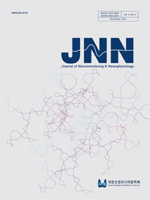
Management strategies for suspected nerve injury during thyroid surgery: a comprehensive review
- 대한신경모니터링학회
- Journal of Neuromonitoring & Neurophysiology
- Vol.4 No.2
- 2024.11
- 111 - 116 (6 pages)
Department of Otolaryngology-Head and Neck surgery, Dankook University School of Medicine, Cheonan, Republic of Korea Thyroid surgery, such as thyroidectomy and lobectomy, is commonly performed to treat thyroid disorders. Nerve injury, especially to the recurrent laryngeal and superior laryngeal nerves, is a major complication, leading to vocal cord paralysis, dysphagia, and reduced quality of life. This review explores strategies for managing suspected nerve injury during thyroid surgery, including preventive measures, intraoperative neuromonitoring, surgical techniques for nerve preservation, and postoperative rehabilitation. Techniques like electromyography, electroglottography, and direct nerve stimulation help detect nerve damage early. Immediate responses, including microsurgical repair, are crucial. Postoperative care involves voice therapy, pharmacological treatment, and psychosocial support. Technological advancements, such as high-definition nerve imaging, robotic-assisted surgery, and artificial intelligence, improve nerve preservation. Effective management requires a multifaceted, multidisciplinary approach to minimize nerve injury and improve patient outcomes. Future research in regenerative medicine and personalized surgical planning holds promise for further advancements.
Introduction
Funding
Conflict of Interest
Data Availavility
ORCID
References